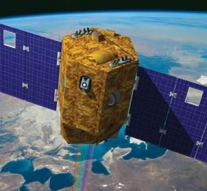
EU-Israel space cooperation: be more and do more
Space policy 2 December 2019Israel has a long aerospace tradition, contributing to scientific and technological space missions. The Israeli Space Agency (ISA) is the governmental body, a part of Israel’s Ministry of Science and Technology, that coordinates all Israeli space research programs with scientific and commercial goals. Originally founded in 1983 to replace the National Committee for Space Research which was established in 1960 to set up the infrastructure required for space missions. It accounts to these years, the beginning of the development of the Shavit launcher.
In origin, the Israeli space program was a byproduct of the 1979 peace treaty with Egypt. Spy planes could not fly over Sinai to make sure Egypt, now a friendly country, was not moving missiles into the demilitarized peninsula, therefore, spy satellites were the answer. Israel’s first attempt in space it was indeed with ballistic missiles. Once Israel reached the point where it had developed ballistic missiles, launching a satellite into orbit came within the realm of the possible, opening itself towards the space – intelligence realm – , testified by ISA’s first satellite launch in 1988, the Ofeq 1, making Israel the eighth nation to gain independence in launch experience. It followed the development and launching of more sophisticated communications, EO and scientific satellites.
What makes Israel’s Space research different is the specialization in developing micro satellites weighing due to historical reasons as the satellites needed to be little and lighter enough to launch them from Israel. Another main source for the Israeli economy is the high technology at disposal to the civilian market for communication, differentiating from US, Russia and Europe which are into more large and expensive human missions, while instead, Israel focus in the sector of innovative space tech, launching some of the world’s lightest satellites through, as mentioned, the development of lightweight technologies.
The opening and cooperation of space relations with the European Union began with the involvement in projects with the European Space Agency. Many are the space projects Israel has been involved with Europe, science projects, such as Huygens, Hubble, Cluster and COROT. It is in 1995 when Israeli students joined an international workshop organised by ESA to work on a concept for a Moon exploration probe. From this, Israel is known as the seventh most powerful country in the world in space research. For example, Israel has been cooperating in 2017 with France, with the launching of Venus, an environmental research satellite. Also, cooperation with ESA is undergoing for further space research.
Going back in time, in 2013, the agreement signed with the EU provided Israeli researchers and companies the access to projects associated with the EU’s Galileo satellite program. Or else, the GNSS between the EC, members states and Israel, signed with former Vice President of the European Commission, responsible for Industry and Entrepreneurship, Antonio Tajani.
In 2017, the EU and Israel celebrated the twenty years of success, partnership and friendship in the field of EU-Israel research and innovation cooperation. Israel was the first non-European country to be associated to the EU Framework Programme back in 1996, and its participation in the EU Framework Programme has been a story of success. Over the past 20 years of partnership, overall Israeli investment amounted to €1.375 billion, while the return to Israeli entities in the form of grants reached €1.7 billion. Over 3,000 projects submitted by Israeli entities were approved involving 4,435 participants. Of these, 2,450 were academic researchers, 1,270 were industrial researchers, and 715 researchers from other sectors.
At UN level, in 2015, Israel signed a cooperation agreement with the United Nations Office for Outer Space Affairs (UNOOSA) to use satellite technology for life-saving activities on Earth and beyond. In 2019, Israel took part to the Draft Resolution on Peaceful Uses of Outer Space, “urging all States, those with major space capabilities in particular, to contribute to the prevention of an arms race in outer space”.
The outer space is a new frontier for Israel, in terms of innovation and international cooperation, and brings room for space exploration for bilateral and multilateral cooperation. Ben Bourgel, from the Israeli Mission to the EU, expresses the support for the “Space2030” Agenda, and the significant contribution of space science and technology in the pursuit of the 2030 Agenda for Sustainable Development.
Not only the Union reclaims the Israeli partnership, the U.S. too. The cooperation between the two sides, beginning in 1996, cooperating on the International Space Station, earth and life sciences, and nanotechnology. More recently, in October 2019, Nasa signed an agreement in with the Israeli Space Agency to cooperatively make use of the Israeli non-profit SpaceIL’s commercial lunar mission, expected to land on the Moon in 2019.
Israel is a pioneer in space tech, and considered themselves to be “in a very special club” of countries that have launched satellites into space, and to be “on the map.” Israel has its share of startups and joint ventures with other states. The willingness to be more and do more at European level is evident.
References
https://www.esa.int/About_Us/Corporate_news/Israel_signs_Cooperation_Agreement)
https://www.un.org/press/en/2019/gaspd705.doc.htm
https://ec.europa.eu/research/iscp/index.cfm?pg=israel


